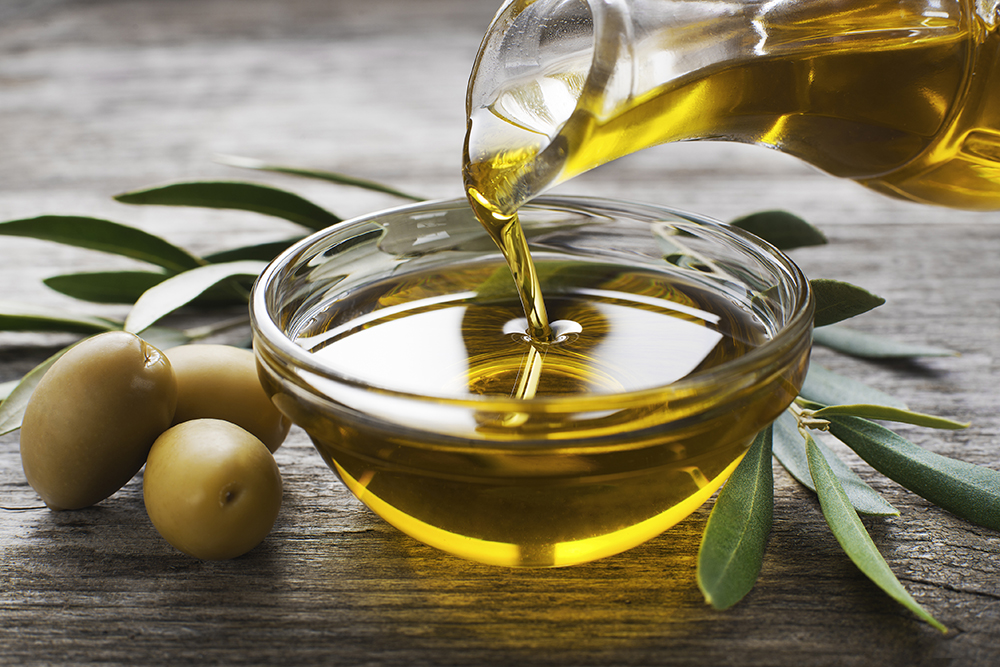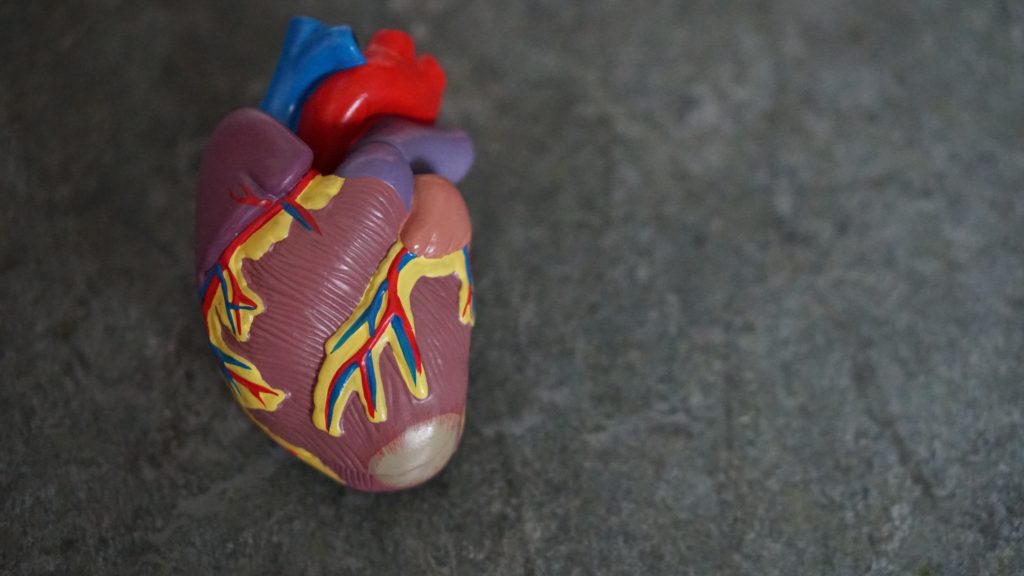4 Life Decisions for People Serious About Their Heart Health
Your heart is arguably the most important organ in your body, and you must take steps to maintain its vitality and function. Many factors play a role in heart health.

Everything you do in your life impacts your heart. Take steps to ensure your actions improve and strengthen your heart, and maintain overall good health in the process. Let’s review four lifestyle decisions to focus on if you are serious about your heart health.
1. Change Your Diet
Make sure you do as much as possible to improve the way in which you fuel your heart better. Adjust your diet to ensure your dietary choices are in line with a heart-healthy diet. Some basics of a heart-healthy diet include regulating portion sizes, consuming, fruits, vegetables, and whole grains, and limiting unhealthy fats. Assess your diet and determine where you need to make adjustments. Make sure the steps you take are steps you can maintain long-term.
Continue readingNotable Impacts of Drug Abuse on Your Heart Health
Contributed by Ryan Peterson.
Most illicit drugs have a negative impact on cardiovascular health. Prolonged use of illicit drugs can have severe impacts beyond your heart health, such as death. Drugs can reduce the rate of blood flow into the heart, which can impair the functioning of your organs and muscles. There are two types of drugs with notable impacts on your heart health.
First, drugs such as cocaine can increase your heart rate and blood pressure. In addition, the more you use cocaine, you may experience a decrease in coronary artery diameter which reduces blood flow.
Cocaine is also associated with irregular heartbeats and QT prolongation, increasing the time between your heartbeats. Other serious medical emergencies connected to cocaine abuse are thrombosis, atherosclerosis, endothelial dysfunction, and microvascular diseases.
A commonly used drug with significant effects on your heart is nicotine. Though by itself, nicotine doesn’t cause any overwhelming heart diseases, the non-combusted form can cause adverse effects on your heart. Some of these effects include narrowing and thickening your heart’s blood vessels, along with increased fat in your blood. Consequently, it can damage blood vessel cells and increase blood clot risk.
Continue readingCan Heart Disease Lead To Hearing Loss?
Contributed by Ryan Peterson.
While it might sound surprising, your heart can have a direct impact on your hearing health. Your hearing is very reliant on the blood flow that gets to your ear, and if that becomes impaired, hearing loss can occur. If you have heart disease, it’s possible for heart disease to lead to hearing loss. Any kind of restriction in the arteries that prevents the ears from getting needed blood can cause damage to your ears. This is not a definitive side effect of heart disease, but you should be aware of all potential side effects so you can treat the issue appropriately.
Every organ in your body is reliant on your heart.

How to identify hearing loss
If you’re experiencing hearing loss, you may not know about it straight away. It could take you months to realize what you are experiencing is a result of a loss of hearing, rather than an odd occurrence. Others might notice it before you do, which is when you should show some concern and see a professional.
If you find yourself constantly asking others to repeat themselves, be it over the phone or in person, it is something to consider as a concern. Everyone is different and it doesn’t necessarily mean that you’re experiencing hearing loss, but it’s still a red flag to get checked.
Continue reading10 Big Health Benefits of Olive Oil…but be sure you buy the right type
You know I’m a big believer of “food as medicine” and avoiding actual medication and the unpleasant side effects whenever possible.
I love that quote from Hippocrates, the father of medicine, who said, “Let food be thy medicine, and let medicine be thy food.”
And that’s why I’d like to talk with you today about the 10 big health benefits of olive oil.
In fact, it was Hippocrates himself who dubbed olive oil “the great therapeutic.” The ancient Greek physician identified more than 60 medicinal uses for olive oil.
Fortunately, after two and a half millennia, modern science is beginning to catch up with the wise, old Hippocrates. Many clinical studies, including the large-scale PREDIMED trials to evaluate the effects of the Mediterranean diet, have demonstrated olive oil’s role in preventing chronic diseases.
A delicious component of a nutritious diet, olive oil and its consumption may also be considered preventive healthcare—with topical therapeutic uses, too.
Important note: In order to reap the health benefits of olive oil, it is crucial that you procure extra virgin olive oil (EVOO). It’s the only grade of olive oil that retains its natural phenols (antioxidants) and other active compounds. (EVOO is minimally processed, whereas other oil grades, such as virgin, “pure,” or “light,” have been industrially refined and the healthful phenols destroyed.)

“The Fresher, the Better” — America’s Test Kitchen
Also, remember olive oil is never more flavorful—or bursting with more super-healthy polyphenols—than when it’s fresh-pressed. This is why, as the culinary experts at America’s Test Kitchen put it, when it comes to olive oil, “the fresher, the better.”
It’s also why medical professionals recommend selecting EVOO from the most recent olive harvest as a strategy for obtaining the highest-quality, highest-phenolic oil. (Here is a source, The Fresh-Pressed Olive Oil Club—the only one I know of that ships independently lab-certified 100% pure EVOO direct from the harvest. It’s a great way to get farm-fresh EVOO shipped right to your door. I actually have a couple bottles in my cupboard from the last harvest.)
10 Proven Health Benefits of Olive Oil
1. Can reduce the risk of heart disease.
Two tablespoons of EVOO per day can reduce your risk of heart disease by improving blood cholesterol levels: lowering LDL (“bad”) cholesterol and increasing HDL (“good”) cholesterol.
Heart disease can affect people of all ages, although the risk increases as you get older. Rising obesity levels in the US and around the world have lowered the average age of onset of heart disease risk factors such as atherosclerosis (“hardening of the arteries”), which can start as early as childhood.
2. Can help prevent type 2 diabetes.
Several studies have shown that EVOO as part of the Mediterranean diet can help prevent type 2 diabetes. In a PREDIMED study, the group of people who ate an olive oil–rich Mediterranean diet reported 40% fewer cases of diabetes than the control group (who did not consume olive oil). In another study, which evaluated people at risk for diabetes, two tablespoons per day of EVOO, along with fiber, reduced fasting and 2-hour glucose (blood sugar) to normal, non-diabetic levels.
3. May protect against breast cancer.
A long-term PREDIMED study suggests that a Mediterranean diet enriched with EVOO (1 liter a week for participants and their families) helps protect against breast cancer. Olive oil consumption is also inversely related to breast density: women who consume greater amounts of olive oil are less likely to have high breast density, a risk factor for breast cancer.
How Does Heart Health Factor Into Your Lifespan?
Contributed by Ryan Peterson.

Your heart is by far one of the most important organs in your body. Providing oxygen to your muscles, organs, and brain, the beating center of your body would be impossible to live without. Of course, though, many people go through life without considering the health of their heart, making lifestyle choices that will ultimately leave them in a bad position. To help you out with this, this article will be exploring how heart health can impact your lifespan, along with some of the tools that can be used to combat poor heart health.
How Important Is Your Heart?
As mentioned above, your heart is one of the most crucial organs inside your body. Your heart moves blood around your body, transporting oxygen that is captured in your lungs, nutrients from your stomach, and cells that are vital to your immune system around your body. Without the pumping of the heart, you can die within a short window of time. This goes to show just how important the heart is for life. You must look after the health of your heart.
Can You Replace Your Heart?
Medical science has come a long way over the last few years, and it’s become possible to replace many organs with synthetic alternatives or transplants from donors. Of course, undergoing a heart transplant is an extremely serious procedure, and it isn’t something you should use as a contingency plan in case your heart health worsens. Serious heart problems can shave decades off of your lifespan, and a transplant will often only be a temporary solution.
Continue readingMaintaining A Healthy Heart: 5 Simple Mistakes That Are Holding You Back
Contributed by Ryan Peterson.

Whether you have a family history of heart problems or simply appreciate the rewards of keeping yours in check doesn’t matter. Maintaining a healthy heart should be a priority for all. Sadly, millions of people fail to unlock the best results despite making a conscious effort. Instead, they continue to restrict themselves by committing very basic faux pas.
Here are five of the most common traps you may be guilty of falling into. If you are, now is the time to regain control of the situation.
1. Allowing stress to take over
Stress is responsible for the onset of many different problems. This includes several issues that increase the threat of heart attacks. While it’s impossible to banish stress from your life, several positive steps can be taken. Fighting financial stress and investing in better sleep patterns should be at the top of your agenda. Above all else, you should be willing to talk about any concerns you have. Bottling things inside allows stress to grow until it takes a toll.
2. Not eating enough
Obesity is a major cause of poor heart health. However, extreme diets and calorie deficits may be equally harmful. The key is to maintain a healthy weight while ensuring your body obtains the needed nutrients to promote healthy organs. A centrifugal juicer encourages you to increase your fruit and vegetable consumption. Place your focus on vitamins your need for a healthy heart, such as vitamin D. You then realize it’s imperative that you keep eating, but select the right foods.
Continue reading


